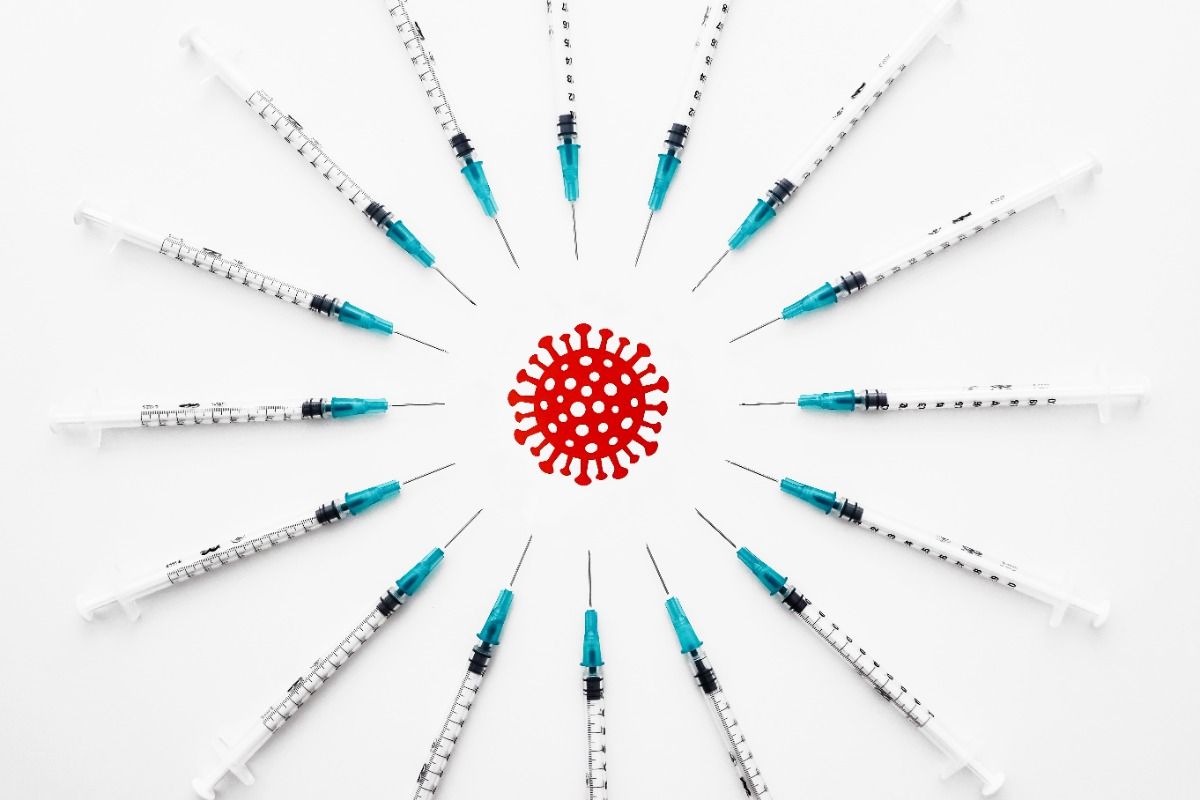
There’s a variant of Covid-19 that’s been all over the news recently: Omicron. On the 26th of November 2021, the World Health Organization designated the variant B.1.1.529 a variant of concern, named Omicron, on the advice of WHO’s Technical Advisory Group on Virus Evolution (TAG-VE).
As we enter the new year, the Omicron variant is breaking all previous records in the US and elsewhere, with the experts saying its peak is still at least a couple of weeks away, if not more. Although the new variant seems to spread faster than other variants, it is seen to be causing less severe illness and fewer hospitalizations or deaths, when compared with the previous variants.
In the week ending Dec 18th 2021, Omicron accounted for 37.9 percent of active US Covid cases. However, according to the Centers for Disease Control and Prevention, the week ending on Jan 1st 2022 saw the new variant taking the predominant position, with 95.4 percent of all US COVID-19 cases.

Global Impact of Omicron on Healthcare and Economy
The frenetic speed of Omicron’s worldwide spread has seen the new variant comfortably outpacing its predecessor, Delta, with each case precipitating three to four new infections on average. In country after country, as cases soar to record highs, the failure to curb the spread could lead to a massive surge in global infections, leading to an imminent collapse of the threadbare healthcare infrastructure in nations with low vaccine penetration.
Omicron, fast becoming the predominant Covid-19 virus variant, has the potential to cause severe disruption to already crippled supply chains because of its high rate of transmission and vaccine resistance. This could result in a severe slowdown in global economic recovery, with a prolonged period of higher inflation worldwide.
The Organization for Economic Co-operation and Development, one of the leading economic think tanks, says in its report that western governments could be forced to extend more emergency financial support to households and businesses, to counter a major global slowdown triggered by the Omicron variant.
Lack of Foresight Has Led to Massive Economic Imbalance
The latest economic report by OECD projects global GDP growth at 4.5 percent in 2022, down from 5.6 percent in 2021 and sliding back to 3.2 percent in 2023. The report censures the G20 group of wealthy nations for their failure to ensure effective and rapid vaccination around the world, which in turn has resulted in a highly imbalanced economic recovery.
While the developed nations ended up spending an estimated $10 trillion to support their economies since the beginning of the COVID-19 pandemic, they have been nothing short of shortsighted in not ensuring worldwide vaccination that would have cost $50 billion.

Are We Entering a Phase of Renewed Economic Curbs and Travel Restrictions?
The massive rise in worldwide coronavirus infections could force various nations to impose harsher curbs and restrictions, handing out a punishing blow to the flow of goods and services, curbing economic activity, and driving millions of people across the globe toward unemployment and poverty.
The travel and tourism sector, always the first one to be affected, has already started feeling the heat ever since the Omicron variant was discovered. Ancillary sectors, including airlines and restaurants, are witnessing a sharp fall in economic activity as the variant spreads like a tsunami across the globe.
What is Behind Omicron’s Lightning-Quick Spread?
Does the new variant produce more copies of itself in a cell? Or does it stick to cells more effectively? One major difference with Omicron is the shorter incubation period that speeds up infections significantly. A small CDC study establishes Omicron’s incubation period at about 3 days, as compared with 4.3 days for Delta and 5 days for other variants.
The latest findings also show that the new variant multiplies roughly 70 times faster than Delta did in the airways connecting the trachea to the lungs. On the upside, Omicron causes less severe infection in the lungs than Delta variant or the original coronavirus that was first identified in Wuhan, China.
Researchers have found Omicron to be two to three times more infectious than the Delta variant. The variant’s ability to infect human cells more efficiently and dodge our immunity with mutations on the spike protein, has made even the vaccinated and boosted population more vulnerable.

Can Omicron Help Us Reach Herd Immunity?
Herd immunity, or the idea that a virus will disappear on its own when it does not find enough hosts to sustain itself, is not going to happen anytime in the immediate future. SARS-CoV-2 is too well adapted to us and too widespread for it to magically disappear overnight. However, sometime in 2022, we could potentially be in a situation to keep it under check with vaccines, booster shots, antibody cocktails, and oral pills.
Nobody can blame epidemiologists for being guarded in their statements about this hydra-headed and complex scourge, but there are many voices claiming that we might see much smaller surges in the future, once this big surge is over in the next couple of months. New variants will keep on evolving, but with so many people already infected or vaccinated, there should be sufficient immunity to prevent new variants from finding a lot of vulnerable hosts.
What is After Omicron?
It is a sad reality that the world is unable to adequately deal with a new surge two years into the pandemic. While there have been ample warnings of mutations in the virus from the scientists, it seems that our response has been too little too late at its best, and chaotic at its worst. News agency Reuters has reported a steady increase in hospitalizations since late December, with the sheer number of Omicron cases placing a strain on hospitals.
Although early findings are pointing toward less severity with the Omicron variant as compared to the Delta variant, we still do not have sufficient data and research to categorically state whether Omicron is inherently less dangerous. Even with the potentially lower severity, the exponentially higher rate of transmission is resulting in increased hospitalizations, especially among the unvaccinated and more vulnerable sections of society, including children below the age of 18.
Recommended Actions for Everyone
The most effective steps that we can all take to reduce the spread of the COVID-19 virus are still the rudimentary ones: wear a well-fitting mask, keep a physical distance of at least 1 meter from others, avoid crowded or poorly ventilated spaces, open windows to keep spaces well-ventilated, clean hands regularly, cough into a tissue or bent elbow, get vaccinations, and take rapid Covid tests.
Consider purchasing an at-home, portable, and easy-to-use rapid Covid test. The Circle HealthPod Covid testing device delivers results from the comfort of your home, in just 20 minutes.
Remember, we are in the middle of an unprecedented global health crisis, and it is not just about ourselves as individuals. Practice safety measures for everyone’s sake, not just your own.






